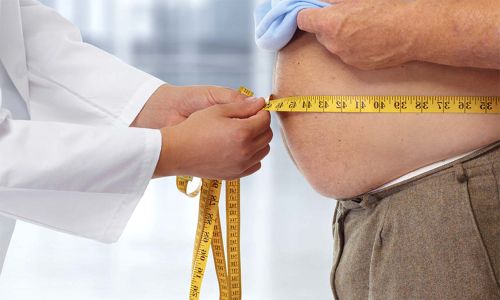Post-surgery begins the individual's journey of weight loss and health improvement. This process includes some critical stages depending on the type of surgery and the person's compliance. The most important goal after obesity surgery is to achieve permanent and healthy weight loss. Diet, exercise and regular doctor check-ups are important to achieve this goal.
What is the Recovery Process After Bariatric Surgery?
 The postoperative recovery process varies depending on the type of surgery, health status and compliance with the doctor's instructions. Generally, patients spend the first few days after surgery in the hospital. During this period, the body's reaction to the surgery is monitored and possible complications are tried to be prevented. After the hospital period is completed, the recovery process continues at home and takes approximately 4-6 weeks. Nutrition is of great importance during the healing process. A liquid diet is applied immediately after the surgery. The transition from liquid to solid food is done gradually. In the first days, only clear liquids and water are consumed. Over time, pureed foods are introduced and solid foods are started after approximately 4 weeks. This transition period is necessary for the stomach and digestive system to adapt to the surgery. Light physical activities after surgery support healing. Low-paced activities such as walking are recommended for the first few weeks. Regular exercise increases blood circulation and prevents muscle loss. Regular doctor checks are very important. While the body gets used to the new diet, vitamin and mineral deficiencies may occur. Therefore, the doctor may recommend supplemental vitamins. To successfully complete the healing process, doctor's instructions must be fully followed. The post-operative recovery process helps the person reach a healthy weight by improving their quality of life. Provides permanent success with lifestyle changes.
The postoperative recovery process varies depending on the type of surgery, health status and compliance with the doctor's instructions. Generally, patients spend the first few days after surgery in the hospital. During this period, the body's reaction to the surgery is monitored and possible complications are tried to be prevented. After the hospital period is completed, the recovery process continues at home and takes approximately 4-6 weeks. Nutrition is of great importance during the healing process. A liquid diet is applied immediately after the surgery. The transition from liquid to solid food is done gradually. In the first days, only clear liquids and water are consumed. Over time, pureed foods are introduced and solid foods are started after approximately 4 weeks. This transition period is necessary for the stomach and digestive system to adapt to the surgery. Light physical activities after surgery support healing. Low-paced activities such as walking are recommended for the first few weeks. Regular exercise increases blood circulation and prevents muscle loss. Regular doctor checks are very important. While the body gets used to the new diet, vitamin and mineral deficiencies may occur. Therefore, the doctor may recommend supplemental vitamins. To successfully complete the healing process, doctor's instructions must be fully followed. The post-operative recovery process helps the person reach a healthy weight by improving their quality of life. Provides permanent success with lifestyle changes.
What Should Be Considered After Bariatric Surgery?
 Things to consider after obesity surgery are important to have a healthy recovery process. Additionally, these issues are also necessary to achieve permanent weight loss. One of the most critical issues after surgery is nutrition. In the first weeks, liquid nutrition is followed by puree foods. Then, it is recommended to gradually transition to solid foods. During this process, it is necessary to stick to the nutrition plan recommended by the doctor to avoid straining the stomach. It is also very important to avoid overeating, consume small portions and chew well. Attention should also be paid to adequate water intake. However, you should not consume water with meals. Otherwise, extra load may be placed on the stomach. It would be a better choice to consume water between meals. Additionally, carbonated drinks and high-calorie, sugary foods should be avoided. Physical activity should be considered during the recovery process. The postoperative period should be started with light walks. Exercise level can be increased over time. Regular exercise both accelerates weight loss and has positive effects on general health. Vitamin and mineral supplements should be used as recommended by the doctor. Some vitamin and mineral deficiencies may occur in the body after surgery. That's why it's important to follow the supplements recommended by the doctor. Post-operative checks should not be neglected. During these checks, the status of body functions and the weight loss process are monitored. For a healthy result, doctor's recommendations should be followed carefully and lifestyle changes should be made. Being patient and determined throughout this process are essential elements for long-term success.
Things to consider after obesity surgery are important to have a healthy recovery process. Additionally, these issues are also necessary to achieve permanent weight loss. One of the most critical issues after surgery is nutrition. In the first weeks, liquid nutrition is followed by puree foods. Then, it is recommended to gradually transition to solid foods. During this process, it is necessary to stick to the nutrition plan recommended by the doctor to avoid straining the stomach. It is also very important to avoid overeating, consume small portions and chew well. Attention should also be paid to adequate water intake. However, you should not consume water with meals. Otherwise, extra load may be placed on the stomach. It would be a better choice to consume water between meals. Additionally, carbonated drinks and high-calorie, sugary foods should be avoided. Physical activity should be considered during the recovery process. The postoperative period should be started with light walks. Exercise level can be increased over time. Regular exercise both accelerates weight loss and has positive effects on general health. Vitamin and mineral supplements should be used as recommended by the doctor. Some vitamin and mineral deficiencies may occur in the body after surgery. That's why it's important to follow the supplements recommended by the doctor. Post-operative checks should not be neglected. During these checks, the status of body functions and the weight loss process are monitored. For a healthy result, doctor's recommendations should be followed carefully and lifestyle changes should be made. Being patient and determined throughout this process are essential elements for long-term success.
Return to Daily Life After Bariatric Surgery
 Returning to daily life after obesity surgery requires planning and compliance with doctor's recommendations. The first days after surgery are a period when the person is under surveillance in the hospital and the recovery process is observed. After discharge, patients should rest for several weeks. He/she should gradually increase his/her activities by following the instructions set by the doctors. Diet is one of the most important issues when returning to daily life. In the first weeks after the surgery, liquid nutrition is applied. It is then consumed in the form of puree. Then, transition to soft solid foods is made. After about a month, solid foods can be consumed cautiously. During this period, it is important to eat small but frequent meals, chew food thoroughly and not overfill the stomach. Especially sugary, high-calorie and fatty foods should be avoided. A protein-rich diet should be preferred. Physical activity is part of the return to daily life. Light walks are recommended in the first weeks after surgery. Exercise duration and intensity can be gradually increased as the body recovers. Regular movement supports weight loss. It also accelerates the healing process. Psychological support also plays an important role in the postoperative period. Adjusting to a new diet and lifestyle can sometimes be challenging. In this case, getting psychological support makes the process easier. Returning to social life after obesity surgery requires patience and adaptation. Gaining new habits is important to make the successful results of the surgery permanent. Going for regular doctor checkups and sticking to a healthy lifestyle is essential for long-term success.
Returning to daily life after obesity surgery requires planning and compliance with doctor's recommendations. The first days after surgery are a period when the person is under surveillance in the hospital and the recovery process is observed. After discharge, patients should rest for several weeks. He/she should gradually increase his/her activities by following the instructions set by the doctors. Diet is one of the most important issues when returning to daily life. In the first weeks after the surgery, liquid nutrition is applied. It is then consumed in the form of puree. Then, transition to soft solid foods is made. After about a month, solid foods can be consumed cautiously. During this period, it is important to eat small but frequent meals, chew food thoroughly and not overfill the stomach. Especially sugary, high-calorie and fatty foods should be avoided. A protein-rich diet should be preferred. Physical activity is part of the return to daily life. Light walks are recommended in the first weeks after surgery. Exercise duration and intensity can be gradually increased as the body recovers. Regular movement supports weight loss. It also accelerates the healing process. Psychological support also plays an important role in the postoperative period. Adjusting to a new diet and lifestyle can sometimes be challenging. In this case, getting psychological support makes the process easier. Returning to social life after obesity surgery requires patience and adaptation. Gaining new habits is important to make the successful results of the surgery permanent. Going for regular doctor checkups and sticking to a healthy lifestyle is essential for long-term success.


